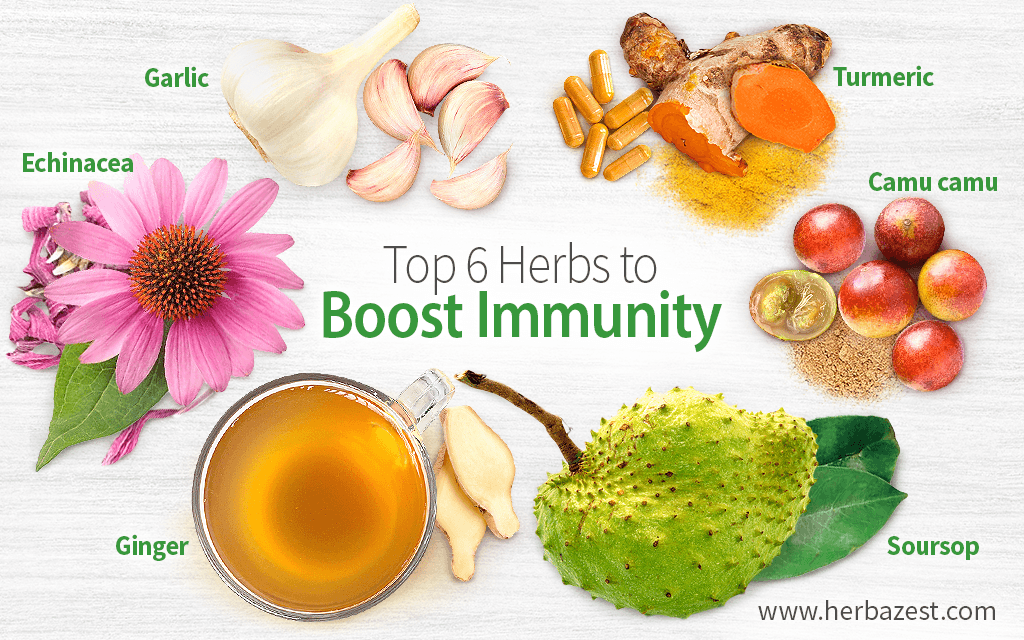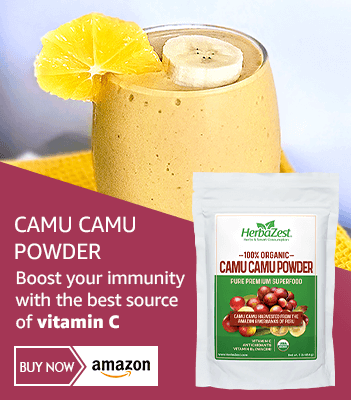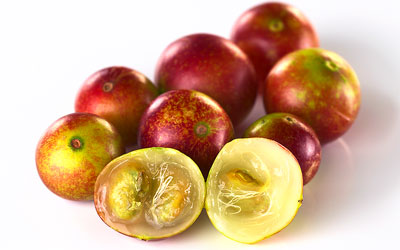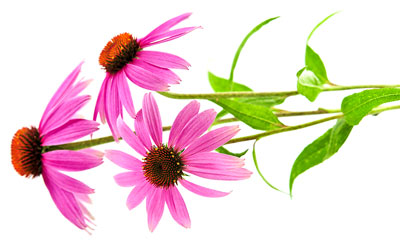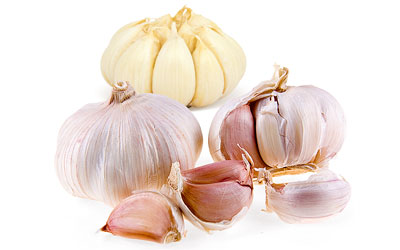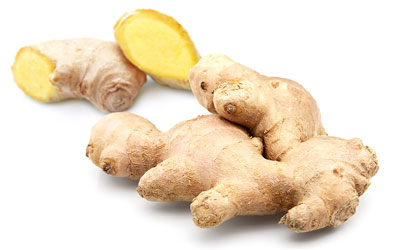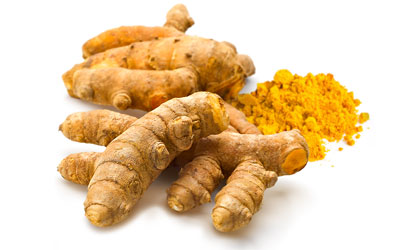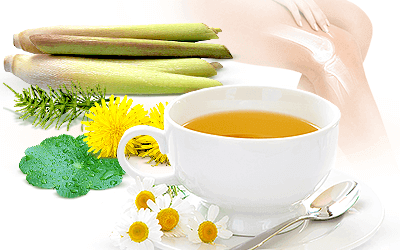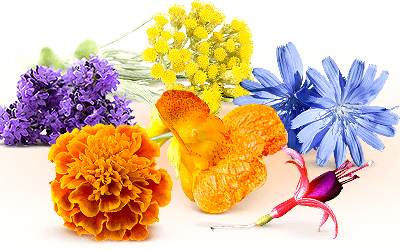The immune system is essentially the body's first line of defense against disease and infection. It is composed of a network of cells, tissues, and organs that work together to combat harmful pathogens, ranging from the common cold virus to bacteria. Scientists are continuously investigating ways to boost the immune system. Though there is no one specific "medicine" to improve immunity, many herbs have natural immune-boosting properties that can be easily integrated into your diet to enhance your body's defenses against pathogens.
1. Garlic (Allium sativum)
Native to central Asia, garlic has a significant role in herbal remedial culture because of its numerous medical properties as an antiviral, antibacterial, and antiseptic herb. It boosts immunity through countering bacteria, viruses, and fungi. Garlic's effects on inflammation and immunity in obese adults have been studied and validated by science. The raw cloves of garlic are considered most medicinally powerful; however, to achieve optimal effects, an adult would need to consume between two and four garlic cloves a day, so this herb is most popularly consumed in supplementary form.
While garlic by itself is a potent immunity booster, when combined with other herbs, like in this garlic and astragalus syrup to surpass flu season, it can be even more effective in warding off seasonal viruses.
2. Echinacea (Echinacea purpurea)
Echinacea, often referred to by gardeners as purple coneflower, is one of the most commonly used herbal remedies in North America. It is taken to treat the common cold and other upper respiratory infections. Studies show that it helps activate or "jump-start" different types of cells in the immune system.1
Since it is one of the quintessential herbs for immunity, having a homemade echinacea tincture for immunity enhancement on hand can be a good idea, especially during the coldest days of the year.
3. Ginger (Zingiber officinale)
The ginger plant has originated in India and is a popular choice in herbal remedial culture for its distinctive flavor as well as its medicinal properties. Nowadays, ginger is mostly recommended for stomach ailments because of its antihistaminic properties, but one of its main traditional uses in the Southwestern Asian region refers to its antibacterial and anti-parasitic properties, which increase immunity against infection and promote gastrointestinal health. Additionally, studies have proven the effectiveness of ginger extract for allergic rhinitis treatment.
The popularity of ginger as an immunity booster have been widely documented in history. If you are feeling a bit under the weather, this simple yet effective lemon and ginger tea for colds and congestions can prevent sickness and speed up recovery.
4. Turmeric (Curcuma longa)
Turmeric originates in India and - like ginger - is celebrated for its flavor as much as its medicinal capabilities. It is popularly used in curry powders and herbal healing. In addition to being a potent anti-inflammatory, curcumin - the main phytonutrient in turmeric - can modulate the immune system. Studies have also shown the effectiveness of turmeric against osteoarthritis, a disease that causes joint pain and inflammation. Turmeric also contains high levels of antioxidants; these boost immunity by neutralizing free radicals (i.e., potentially damaging) in the body.
For those who prefer supplements, these practical and easy-to-make immunity-boosting turmeric camu camu capsules can be ideal for everyday wellness to prevent diseases and reduce inflammations.
5. Camu camu (Myrciaria dubia)
Native to the Peruvian Amazon, camu camu has recently jumped to worldwide fame among conscious eating enthusiasts because it contains one of the highest concentrations of vitamin C as well as large amounts of other antioxidants. Thanks to its vitamin C content, camu camu has proven a sensible choice for improving the health of soft tissues around the body and building a top-notch immune system.2
This immunity-boosting shot with camu camu is easy to prepare at home and can be taken as a preventative measure to keep away sickness and improve overall health.
6. Soursop (Annona muricata)
This tropical plant, native to South America, not only produces a delicious, fleshy fruit, but also possesses great immunity-stimulating properties. Soursop leaf extracts have been shown to have a strong immune-enhancing activity, validating the traditional uses of this herb for treating a wide range of diseases, from parasitic infections and diabetes to degenerative conditions.3
The immune system is just that - a system, or a sum of its parts. This means that there is no singular "miracle medicine" to ensure its healthy functioning. A nourished immune system is dependent on balance, which is something that these immune-boosting herbs can offer over time. Try incorporating them into a healthy and balanced diet to promote long-term strength in your body's defense system.
Sources
- Harvard University, How to Boost Your Immunity
- Journal of Clinical Immunology, "Spicing up" of the immune system by curcumin
- National Institute of Allergy and Infectious Diseases, What is the Immune System? , 2011
- National Institutes of Health, Ginger : MedlinePlus Supplements
- American Cancer Society, What the immune system does, 2013
- Medicinal Plants of the World
- Journal of Alternative and Complementary Medicine, Antioxidant and Associated Capacities of Camu Camu (Myrciaria dubia): A Systematic Review, 2015
- Phytomedicine, Medicinal properties of Echinacea: a critical review
Footnotes:
International Immunopharmacology. (2010). Echinacea and its alkylamides: effects on the influenza A-induced secretion of cytokines, chemokines, and PGE₂ from RAW 264.7 macrophage-like cells. Retrieved June 12, 2023, from: https://pubmed.ncbi.nlm.nih.gov/20674883/
Fish & Shellfish Immunology. (2016). Dietary camu camu, Myrciaria dubia, enhances immunological response in Nile tilapia. Retrieved June 12, 2023, from: https://pubmed.ncbi.nlm.nih.gov/27539707/
- Evidence Based Complementary and Alternative Medicine. (2016). Immunomodulatory Efficacy of Standardized Annona muricata (Graviola) Leaf Extract via Activation of Mitogen-Activated Protein Kinase Pathways in RAW 264.7 Macrophages. Retrieved June 12, 2023, from: https://www.ncbi.nlm.nih.gov/pmc/articles/PMC5209628/


